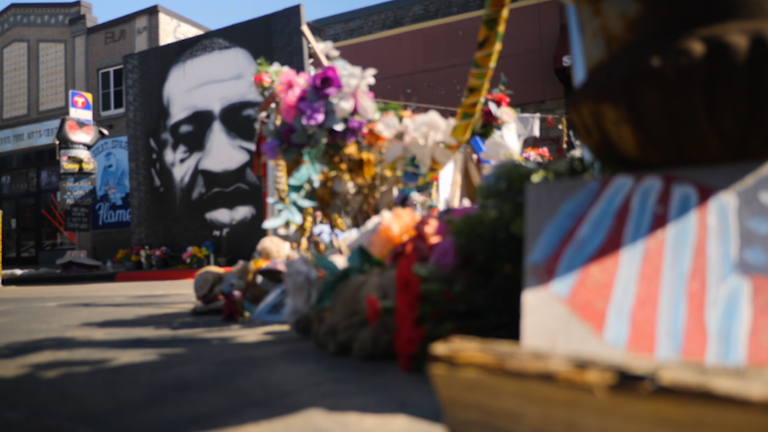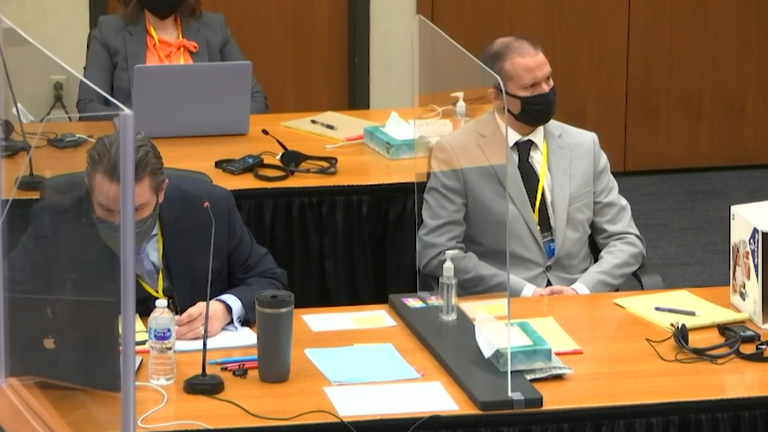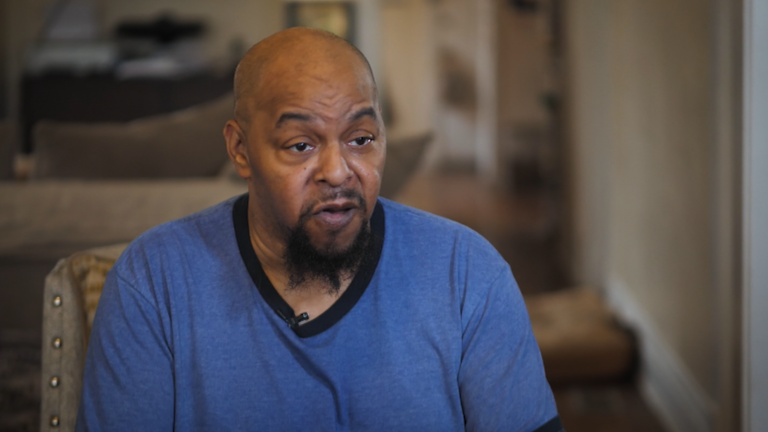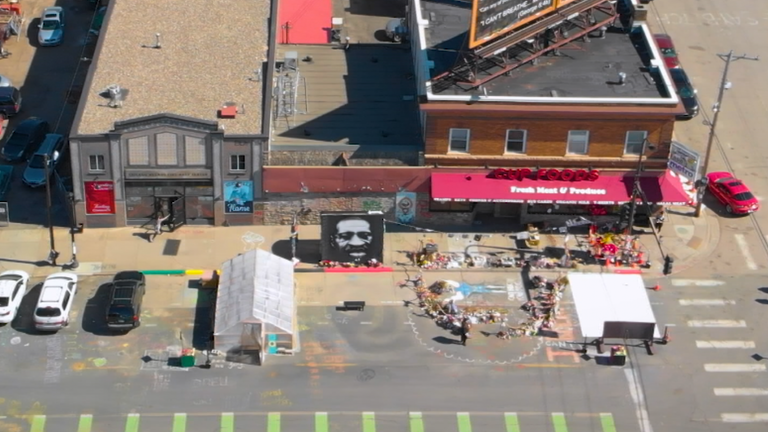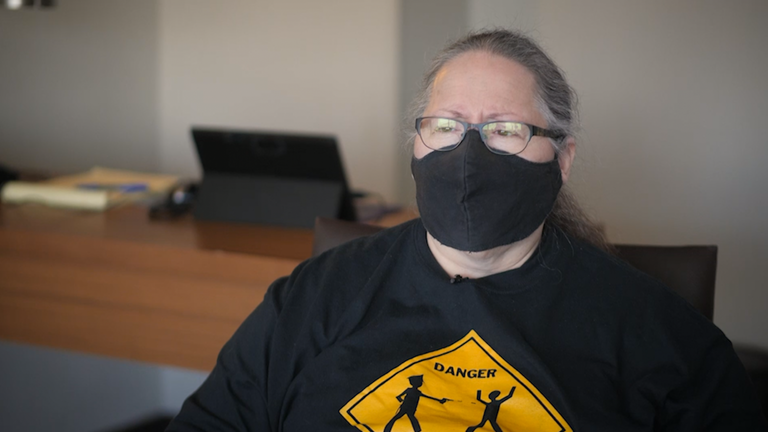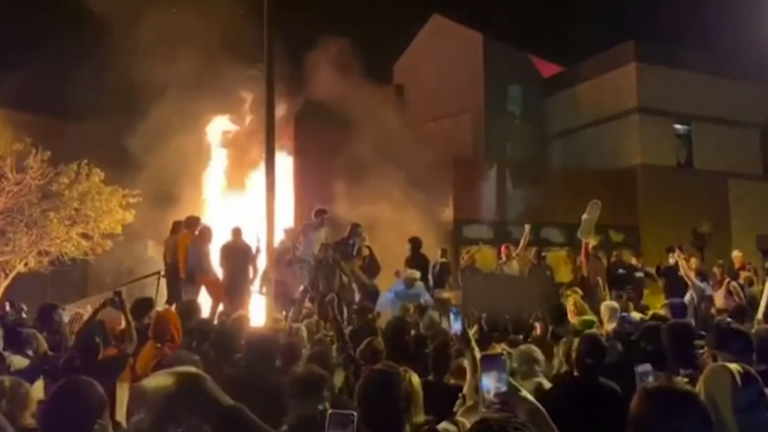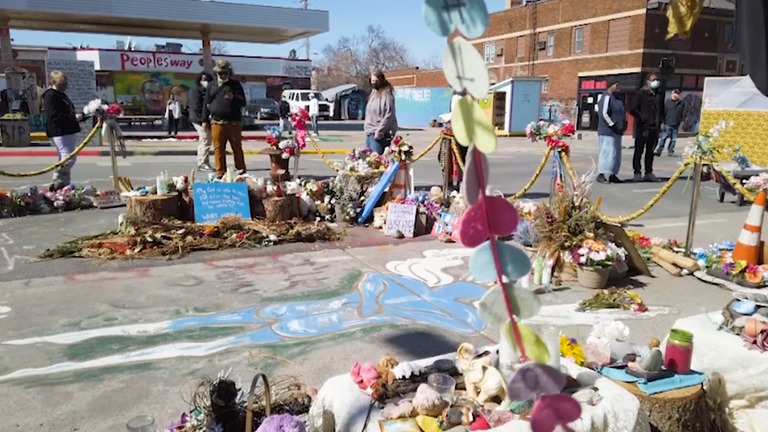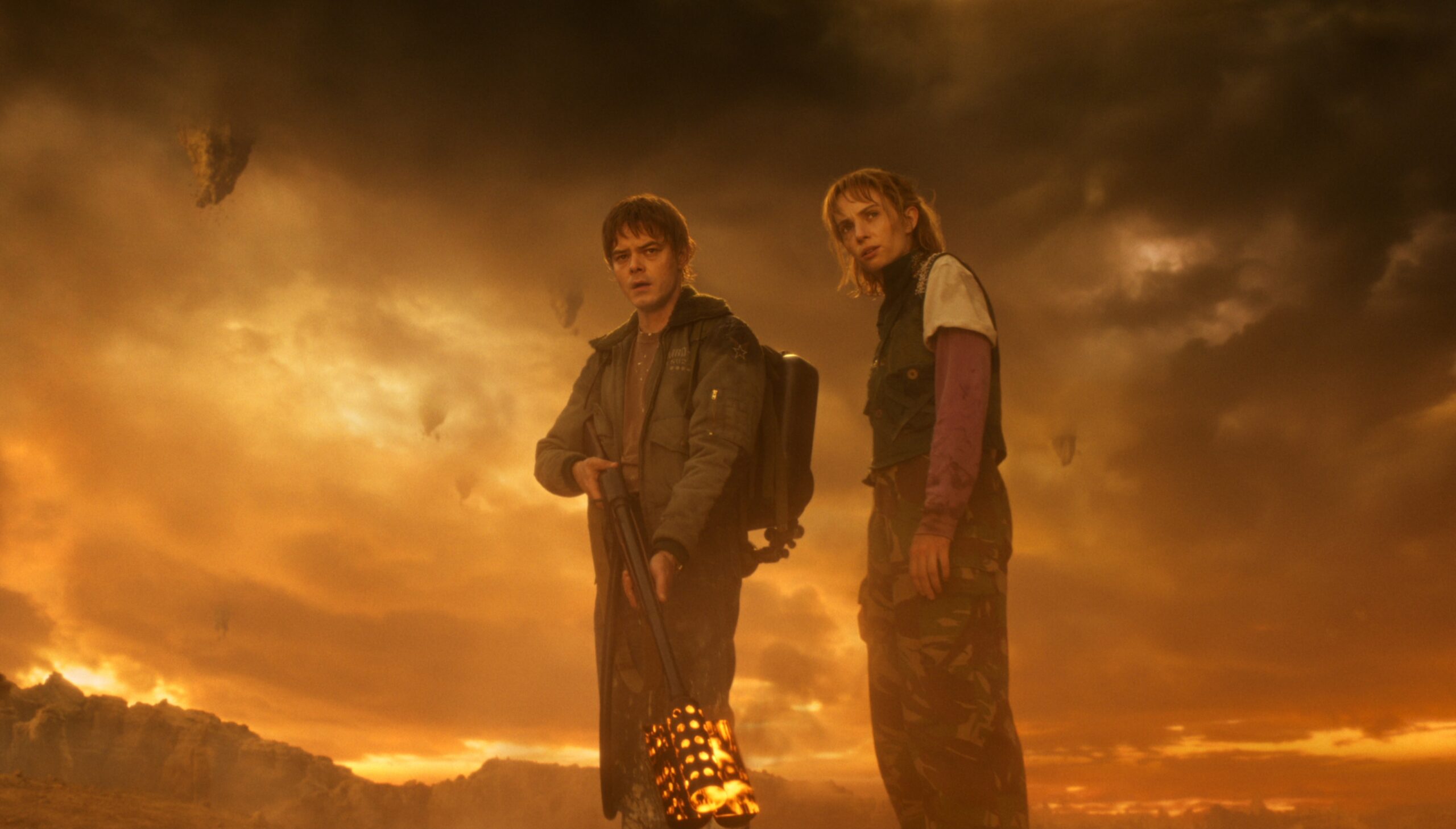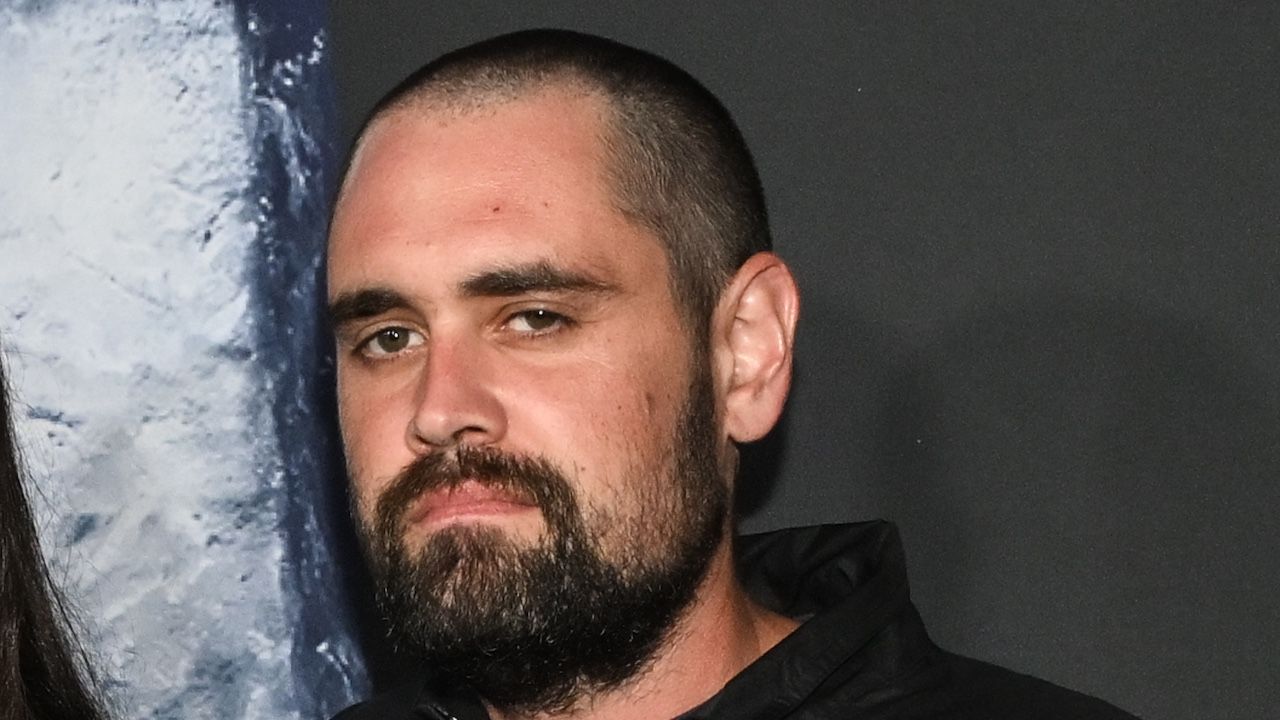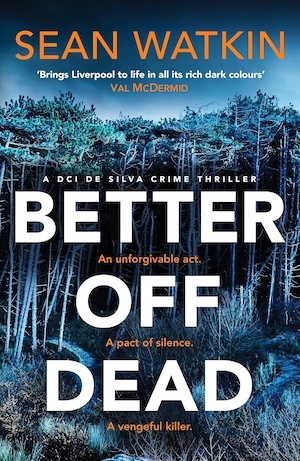Once again, the eyes of the world are on Minneapolis – the city is braced for the trial of the former police officer accused of murdering George Floyd.
For many this will be a defining moment for America. The trial is being hailed as one of the most important in US history.
The intersection where Mr Floyd died has become a sacred space.
The area now known as “George Floyd Square” is a police-free zone with heightened emotions by day, increased shootings and gang violence by night.
George Floyd Killing: The Trial – From Monday at 3pm we will bring you live continuous coverage of court proceedings in the trial of Derek Chauvin on our website, app, YouTube and Sky Channel 524
In the coming weeks a jury will have to decide if what happened here was murder – if police officer Derek Chauvin intended to kill George Floyd when he knelt on his neck for nearly nine minutes.
Ken Rance, who served on Minneapolis‘ Police Conduct Review Panel, says Mr Floyd’s death was the worst abuse of civil rights he’s ever witnessed.
He said: “The US is at a racial crossroads – it’s one of the things that we’ve never truly addressed as a nation and, until we do, it is going to continue to pull us apart.
“I’ve reviewed my share of cases, but this was the worst; the most egregious violation of civil rights I’ve ever witnessed.
“For eight minutes and 46 seconds he had his knee on this man’s neck.
“I’ve asked myself… what was his intent? When was enough, enough? He had eight minutes and 46 seconds to think about his actions.
“Was he going to let George Floyd up after nine minutes? After 10 minutes? What was he waiting for? Was he waiting for help?”
Chauvin is appearing in court in person in the first criminal trial to be televised in the state of Minnesota.
The former police officer was released on $1m bail and pleads not guilty to the murder and manslaughter of Mr Floyd.
It’s alleged Chauvin has a history of excessive force during his 19 years in the police force.
Twelve official complaints have been filed against him in publicly available records.
One of them was made by LaSean Braddock who was arrested by Chauvin in 2013 after a mistaken identity. The mental health worker later filed a complaint about his aggressive treatment.
Mr Braddock says: “I went down on my knees and then I went down to the ground and they jumped all over me.
“Then they put the cuffs on me super tight and I kept complaining ‘The cuffs are tight, can you loosen them please?’ And they said ‘They’re not built for comfort, you know?’
“And I said ‘I understand that, but they’re cutting off my circulation, you know?’ And they kept repeating the same thing, and they still hadn’t told me why I was pulled over at that time.”
Mr Braddock says his treatment made him feel “like an animal. Like my life didn’t matter”.
When he saw the video of Chauvin last May, Mr Braddock says he saw himself in George Floyd.
“He was just on his neck for no reason and he was already subdued and in handcuffs,” he added.
“Like, pretty much, I was in the same position. It’s scary because you don’t know if you’re going to live.
“It makes me feel like if they would have took me seriously, or all the other people that complained against him seriously, then it may not have been to the point where someone died.”
None of the complaints filed against Chauvin resulted in any disciplinary action.
The judge has ruled to limit the evidence about previous incidents allowed in the trial.
Michelle Gross, founder of Communities United Against Police Brutality, has collected the data on police complaints and deaths of citizens involving law enforcement in the state of Minnesota since 2000.
She claims Chauvin was “notorious” as a police officer.
“I knew the history of Derek Chauvin,” she says. “In fact when I saw the video the first thing I noticed was ‘That looks like Derek Chauvin. Oh my gosh!’.
“There are certain officers whose names you hear over and over again and his was one of them.”
The Minneapolis police department is not commenting on Chauvin’s case.
Months of protests last summer revealed the fragile relationship between the force and the community.
A police precinct was burnt to the ground as public trust went up in smoke.
There are ongoing calls for an overhaul of the system which many claim is set up to protect police officers and discriminates against black citizens.
“Where were the checks and the balances?” asks former Minneapolis police conduct review panellist Ken Rance.
“Where were the reviews? Where were the psychological evaluations?
“What might some of those complaints have led to? And were they addressed, where this individual could still be on the streets harming people? That’s completely unacceptable. And unfortunately black people in this country bear the brunt of that.”
The government centre which houses the court room in downtown Minneapolis is already heavily fortified ahead of more potential unrest.
But the security is just a fraction of what we’ll see in the coming weeks. Law enforcement is planning to ramp up their presence throughout the trial and 2,000 members of the National Guard will be mobilised by the time of the verdict.
Chauvin’s lawyers will argue he was just doing his job and following his training as a police officer.
It’s expected his legal team will seek to discredit Mr Floyd’s character and claim his death was related to drugs and a medical condition.
The prosecution will argue none of that was relevant, that Mr Floyd wouldn’t have died had a knee not been on his neck for nearly nine minutes.
Mr Floyd isn’t here to see the impact his death has had on the world. For many this trial is about far more than one life. It’s seen as a verdict on America’s stance on police brutality against its black citizens.
With the jury now selected, opening statements are due to begin in court on Monday. The trial is set to last around four weeks.

